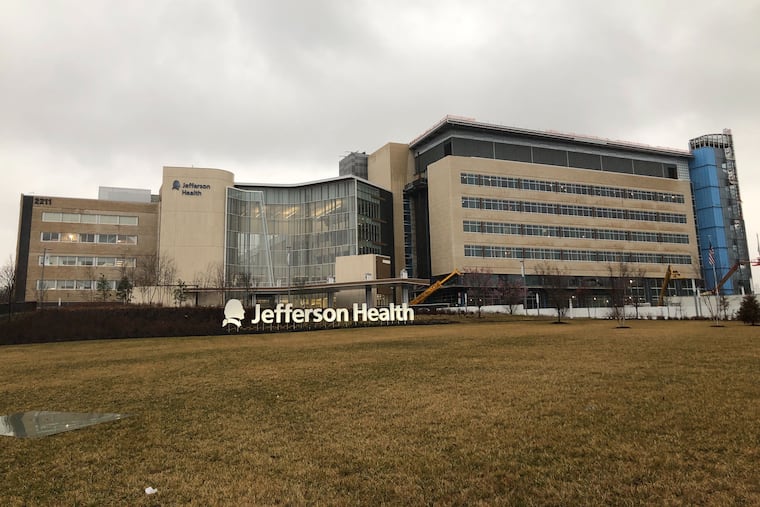As coronavirus spreads, politicians should have the guts to make unpopular decisions | Opinion
The Medical Director of Hospitalists at Jefferson Cherry Hill Hospital on how the facility has been handling coronavirus and what comes next.

At 11:30 a.m. on March 6, I received a call from our hospital chief administrator — asking that I come up for an emergency meeting. As I hurried from the emergency room, I cringed, contemplating what offense I had committed as the medical director for our hospital physician group. Then my heart sank, imaging it may be something affecting a colleague. Finally, I assured myself it was some bureaucratic matter.
I was shocked when I arrived and saw our boardroom buzzing as an impromptu command center. It was a week after the first U.S. death from COVID-19 had been reported on the opposite coast, and apparently, our medium-size regional hospital had the first presumptive positive case in South Jersey.
Up until this point, I had been a passive observer in the tragedy that was unfolding in faraway lands; my only involvement being to answer messages from friends and family. Health-care systems throughout the U.S. are well-prepared for handling life-threatening illnesses like cancer and heart disease, accidents, large-scale disasters like mass shootings or mass transit catastrophes, and millions of cases of infectious diseases like influenza that cause tens of thousands of deaths annually.
However, the main problem with the novel (new) coronavirus and the disease it causes, COVID-19, has been that details about transmission and diagnosis remain a mystery. Furthermore, the response from our authorities has been pathetic considering we have seen worldwide events unfolding since December 2019. The fact is that there have been massive delays in testing, information from the CDC that conflicts messaging from our executive branch, and large places of public gathering have remained open. The media analysis has been mainly focused on hoarding behavior and/or the economic effect on the stock market or the travel industry. It seems that health-care professionals can’t even agree whether the disease itself is overblown or has the potential for obliteration.
The response from Jefferson’s leadership was efficient, empathetic, and most important, the patient received world-class care in New Jersey. As the events unfolded in Cherry Hill, one of my physician colleagues was instructed to self-quarantine for 14 days because of high-risk exposure (and thankfully remains asymptomatic). Other staff from nursing, food services, environmental, and other vital departments were also mandated to do the same. However, despite being well-supported by enterprise initiatives to ensure staff safety, there is anxiety in frontline health-care workers that any of us could be next for quarantine. There are hushed conversations about getting infected and the fear of infecting loved ones. Uncertainty abounds since the incubation period has been reported from zero to 24 days, and there does appear to be a potential for asymptomatic carrier transmission.
The conundrum for our entire region is what will happen if COVID-19 cases increase but valuable teammates are sidelined. The overwhelming message from most authorities has been “don’t panic.” This is sound advice.
Of course, we should all stay at home if sick, wash our hands carefully, not divert face masks from frontline health-care workers, and we should pay special attention to the elderly and vulnerable. Additionally, it serves as an excellent reminder to review our emergency preparedness plan on ready.gov.
However, I strongly believe that local governments should immediately and decisively make some likely unpopular moves. We haven’t paid attention to the lessons from the catastrophe unfolding in other countries. We need politicians with the guts to close all schools, mandate that sporting and entertainment events are canceled, and coordinate a response with neighboring areas. Health-care systems should focus on collaborating rather than working in silos. My work in rural Nepal and Haiti is a daily reminder that brilliant professionals and dedicated organizations can work a few miles apart and yet have no interaction.
No one knows for certain what happens next. Are the models that show U.S. cases doubling every seven days accurate or are some health-care professionals being dramatic? I sincerely believe that thoughts and prayers are rarely helpful in any public health crisis and that declarations of emergency matter less than deeds.
Varun Verma is the medical director of hospitalists at Jefferson Cherry Hill Hospital. He has worked in 10 hospitals across five states in the U.S. and is passionate about global health equity.